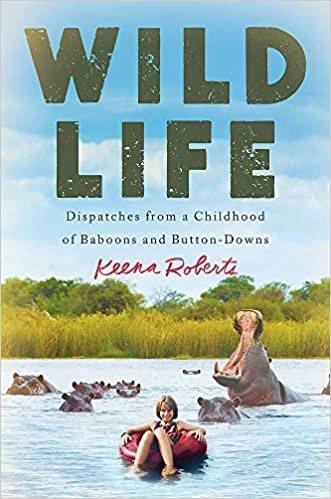Reading Level
What is the reading level of Wild Life: Dispatches from a Childhood of Baboons and Button-Downs?
Analysing the books in the series, we estimate that the reading level of Wild Life: Dispatches from a Childhood of Baboons and Button-Downs is 7th and 8th grade.
Expert Readability Tests for
Wild Life: Dispatches from a Childhood of Baboons and Button-Downs
| Readability Test | Reading Level |
|---|---|
| Flesch Kincaid Scale | Grade 8 |
| SMOG Index | Grade 9 |
| Coleman Liau Index | Grade 7 |
| Dale Chall Readability Score | Grade 5 |
Reading Time
6 hrs 1 mins
How long to read Wild Life: Dispatches from a Childhood of Baboons and Button-Downs?
The estimated word count of Wild Life: Dispatches from a Childhood of Baboons and Button-Downs is 90,210 words.
A person reading at the average speed of 250 words/min, will finish the book in 6 hrs 1 mins. At a slower speed of 150 words/min, they will finish it in 10 hrs 2 mins. At a faster speed of 450 words/min, they will finish it in 3 hrs 21 mins.
| Wild Life: Dispatches from a Childhood of Baboons and Button-Downs - 90,210 words | ||
|---|---|---|
| Reading Speed | Time to Read | |
| Slow | 150 words/min | 10 hrs 2 mins |
| Average | 250 words/min | 6 hrs 1 mins |
| Fast | 450 words/min | 3 hrs 21 mins |
- Authors
-
Keena Roberts
More about Wild Life: Dispatches from a Childhood of Baboons and Button-Downs
90,210 words
Word Count
for Wild Life: Dispatches from a Childhood of Baboons and Button-Downs
304 pages
Pages
9 hours and 42 minutes
Audiobook length
Description
Don't Let's Go to the Dogs Tonight meets Mean Girls in this funny, insightful fish-out-of-water memoir about a young girl coming of age half in a "baboon camp" in Botswana, half in a ritzy Philadelphia suburb.Keena Roberts split her adolescence between the wilds of an island camp in Botswana and the even more treacherous halls of an elite Philadelphia private school. In Africa, she slept in a tent, cooked over a campfire, and lived each day alongside the baboon colony her parents were studying. She could wield a spear as easily as a pencil, and it wasn't unusual to be chased by lions or elephants on any given day. But for the months of the year when her family lived in the United States, this brave kid from the bush was cowed by the far more treacherous landscape of the preppy, private school social hierarchy.Most girls Keena's age didn't spend their days changing truck tires, baking their own bread, or running from elephants as they tried to do their schoolwork. They also didn't carve bird whistles from palm nuts or nearly knock themselves unconscious trying to make homemade palm wine. But Keena's parents were famous primatologists who shuttled her and her sister between Philadelphia and Botswana every six months. Dreamer, reader, and adventurer, she was always far more comfortable avoiding lions and hippopotamuses than she was dealing with spoiled middle-school field hockey players. In Keena's funny, tender memoir, Wild Life, Africa bleeds into America and vice versa, each culture amplifying the other. By turns heartbreaking and hilarious, Wild Life is ultimately the story of a daring but sensitive young girl desperately trying to figure out if there's any place where she truly fits in.
